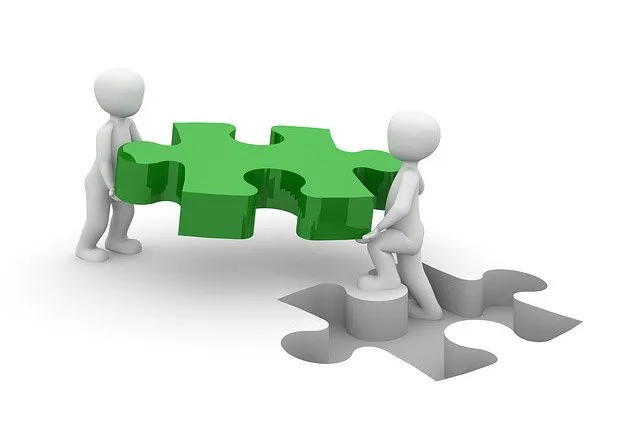Communities develop social norms, for right or wrong reasons. Some of these norms can be in favor of promoting or contributing to the public good. Punishments for violating these social norms are an incentive for people to cooperate towards contributing to the public good.

Source: pixabay
Punishments often develop as a means of social norm enforcement in order to promote cooperation. Of course this is not the only reason punishments are developed and they can be used to coerce people into conformity through threats. The appearance and illusion of "good" can be used to influence public compliance despite outliers who see past the illusion. But that's not what this post is about -- I have talked about that aspect of the falsity we are surrounded by in many previous posts.
Perspectives on Psychological Science published a paper in 2013 in which they wanted to know how low- or high-trust societies were affected by punishments to incentivize contributions towards the public good. 83 studies from 18 societies were used to develop this meta-analysis. The conclusion was evident that punishment promotes cooperation more in high-trust societies compared to low-trust.
Public good dilemmas are used to demonstrate how participants contribute to a public good. These studies have been used to try to determine how groups deal with "free riders" and how to get group members to contribute. Trust levels are established by asking people if they generally trust others or if they need to be careful. This sets a level of trust people have in a society overall.
In high-trust societies like Denmark and the Netherlands, punishment works to promote cooperation in the public good, contrary to low-trusting South Africa or Turkey where punishment doesn't work effectively. These high-trust societies view punishment for violating social norms of what is "good for everyone" as an effective way to enforce cooperation in the society. Others are encouraged to follow the norms or else face the consequences. This justification can be applied to free-riding on public transportation, making too much noise in a neighborhood, or even taxes.
When a group accepts norms, and accepts the justification to enforce those norms through formal punishment of some kind, then the members become more willing to informally enforce cooperative norms because the overall group does. Non-conformity to what a group perceived rightly or wrongly as "good" will result in negative feedback, such as social rejection and loss of cooperative survivability at the peer level, and even imprisonment at the governance level. This conformity and trust to the social norms, along with the fear of punishment, act as a self-enforcement in us and results in less external norm enforcement being applied in a society.
Two studies used an experiment where participants in a small group were given 10 units of money, and first had to decide to contribute to the group fund (public good) or free ride on other's contributors. The group fund was multiplied by 1.5x and equally distributed to all group members. The second part of the experiment was to reveal everyone's decision to the group. Then everyone gets to decide if they want to pay a small amount to punish the non-cooperating member of the group by paying 1 monetary unit to reduce the other by 3 monetary units. Then people are told if there were punished and how much they earned. Then the trial is repeated. There is also a control group with no punishment being dished out.
Different studies show different outcomes based on the level of trust throughout the society. Where trust is greater, the contributions to the public good increased more over time with punishments present as opposed to not having punishments present.
People in a trusted group trust each other to comply with the group norms, and accept the enforcement of punishments to achieve compliance with those norms. Trust, punishment and cooperation seem to be linked to explain how some societies prosper in stability and growth, while others don't.
The findings of the meta-analysis suggest that trust and cooperation are the social capital that forms large-scale societies and "makes the world go round". Large organizations seem to be founded on the stabilizing effect of trust and cooperation that forms in earlier social development of the community. That base of trust is the ground that leads to more construction being possible within a group. Informal enforcement of norms develops in small groups and carries on as things get more complex where often formal legal punishments get established.
Norms, rules, codes of conduct, laws, etc. are always a part of a community or society, for right or wrong. We develop them through our cooperative interactions. Objective understanding of how actions affect others can be discerned through cooperative interaction. Morality can be known apart from the legal fabrications or corrupted cultures that surround humanity and condition us to accept falsity.
Thank you for your time and attention! I appreciate the knowledge reaching more people. Take care. Peace.
References:
- Punishment promotes human cooperation when people trust each other
- Trust, Punishment, and Cooperation Across 18 Societies: A Meta-Analysis
If you appreciate and value the content, please consider:
Upvoting  , Sharing
, Sharing  or Reblogging
or Reblogging  below.
below.
Looking to contact me? Find me on Discord or send me a message on SteemKURE.
Please consider supporting me as a Steem Witness by voting for me at the bottom of the Witness page; or just click on the upvote button if I am in the top 50:

If you are unsure how to vote for witnesses, you can put my name in the "SET PROXY" section at the bottom of the Witness Voting page which will use my witness votes.
2017-03-23, 11:50am
